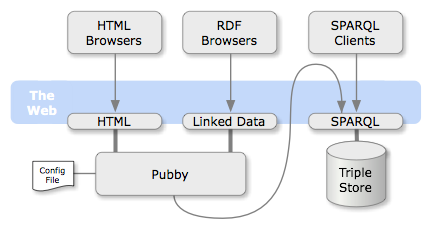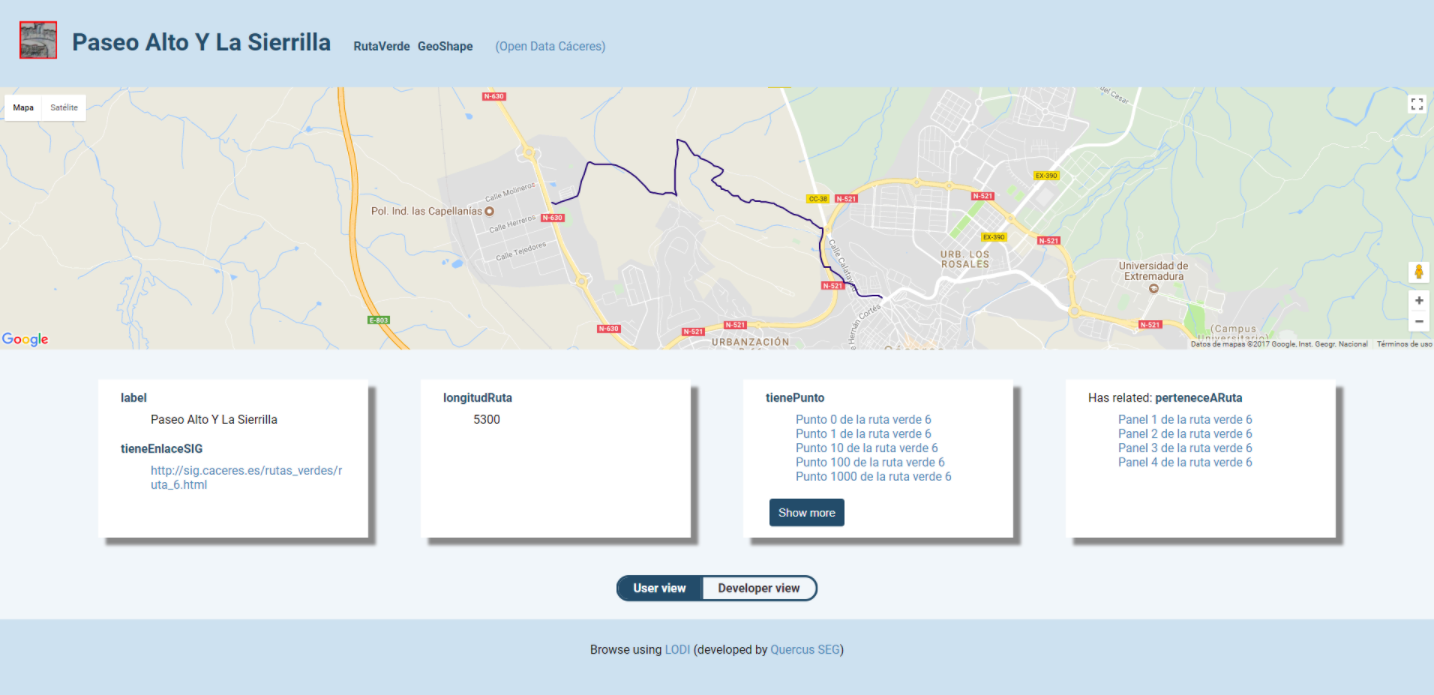Pubby and LODI, opening linked data to humans
Fecha de la noticia: 31-01-2018

An important part of the data which is published on the Semantic Web, where resources are identified by URIs, is stored within triple store databases. This data can only be accessed through SPARQL queries via a SPARQL endpoint.
Moreover, the URIs used, usually designed in a pattern, in most of the datasets which are stored in those databases are not dereferenced, meaning that requests made to that identifier are met with no response (an ‘error 404’ message).
Given the current situation, in which this data is only accessible by machines, and combined with the push of the Linked Data movement, various projects have emerged in which the main objective is to generate human views of the data through web interfaces (where the views of the resources are interlinked), as well as offering a service where the URIs are dereferenced.
Pubby is perhaps the best-known of the projects which have been created for this purpose. It is a Java developed web application, whose code is shared under the open source license Apache Version 2.0. It is designed to be deployed on a system that has SPARQL access to the database of triplets that you wish to apply.

The non-dereferenced URIs and the dereferenced URIs are mapped through a configuration file which is managed by the Pubby server. The application uses this to process the requests to the mapped URIs, requesting the information of the original URI to the associated database (via a SPARQL ‘DESCRIBE’ query) and returning the results to the client in the requested format.
In addition, Pubby provides a simple HTML view of the stored data and manages content negotiation between the different representations. Users can navigate between the HTML views of the linked resources (Linked Data) via the web interface. These views show all the information of the resources, including their attributes and relationships with other resources.
Multiple parallel projects (forks) and inspired projects have emerged from the Pubby project. One of the most recent is the Linked Open Data Inspector (LODI) project, developed by the Quercus software engineering group at the University of Extremadura under Creative Commons 3.0. This project is developed in Node.js and features some positive differences with respect to Pubby:
● It provides a simple HTML view for a general audience, and a more detailed view for programmers.
● It provides resource information in N3 format (but not RDF/XML or Turtle).
● In the case of resources with geospatial information, it displays a map detailing the location.
● In the case of detected images (.jpg, .jpeg or .png), these images are shown automatically.
There are currently two open data portals which are using LODI: Open Data Cáceres and Open Data UEx.

Pubby, LODI and other similar projects (such as LODDY), using the AGROVOC thesaurus, have managed to expose information that was retained within RDF databases which was not accessible to humans. Projects like these help the linked data web continue to grow, both in quantity and quality, putting human interaction at the centre of this progress.










